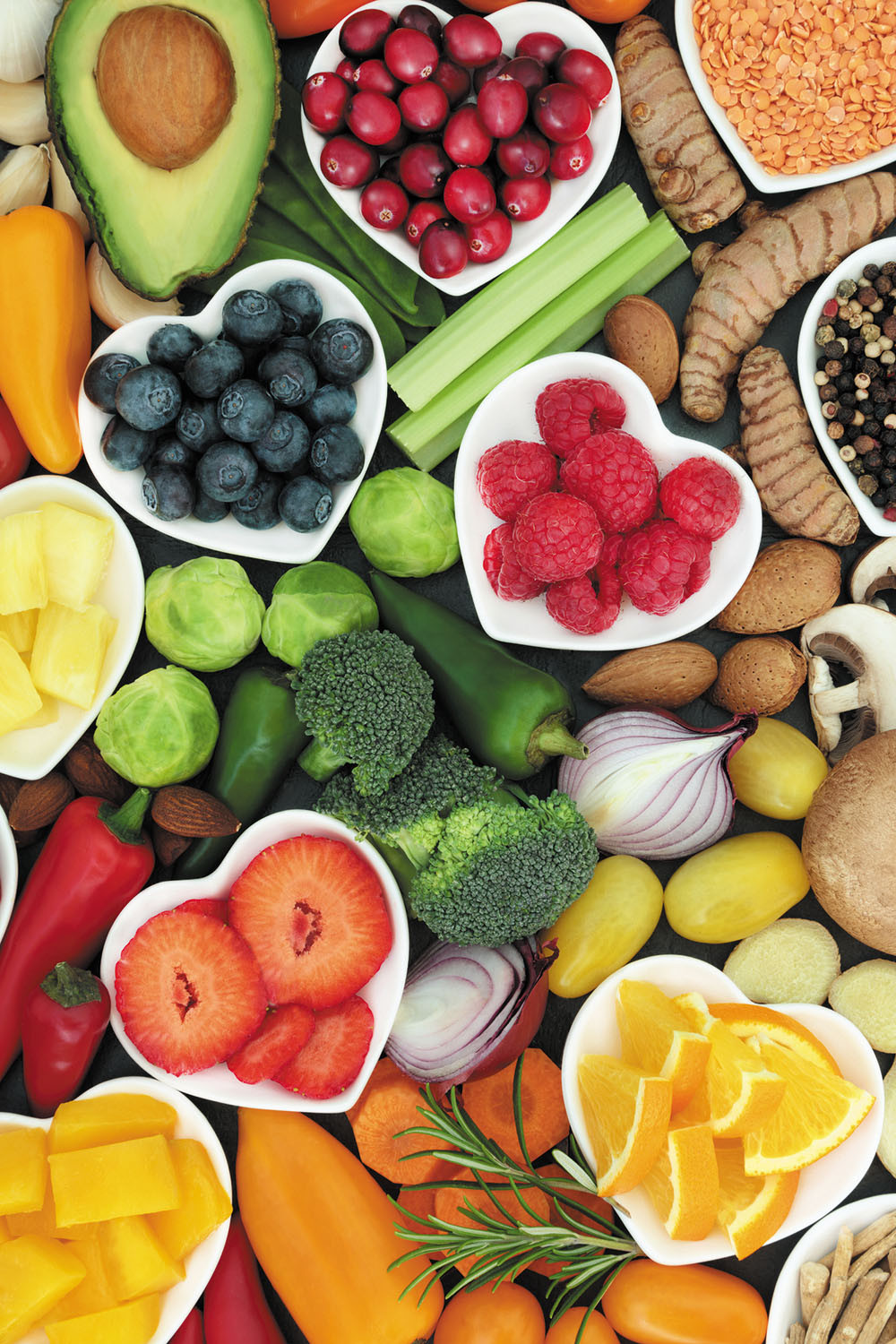
5 timeless habits for better health

What are the symptoms of prostate cancer?

Is your breakfast cereal healthy?

When pain signals an emergency: Symptoms you should never ignore

Does exercise give you energy?

Acupuncture for pain relief: How it works and what to expect

How to avoid jet lag: Tips for staying alert when you travel

Biofeedback therapy: How it works and how it can help relieve pain

Best vitamins and minerals for energy

Should you take probiotics with antibiotics?
Heart Health Archive
Articles
11 foods that can help lower your cholesterol
People with elevated LDL cholesterol values may be able to reduce their LDL levels by eating more foods that are rich in fiber and lower in saturated fats. High-fiber foods include whole grains, beans, nuts, vegetables, and fruits. Saturated fats are found mainly in meat, cheese, and other high-fat dairy products such as butter, half and half, and ice cream.
Time to try intermittent fasting?
Intermittent fasting—a diet that focuses on when rather than what a person eats—may be a good way to lose weight and improve cardiovascular health. One version, time-restricted feeding, involves eating only during a certain time window (usually eight hours) over a single day; another approach limits a person to just 400 to 600 calories daily for several days over the course of a week. The diet may reduce risk factors linked to heart disease, including type 2 diabetes, high blood pressure, unhealthy blood lipid levels, and inflammation.
Sugar's not-so-sweet effects on the heart
A sugary diet contributes to weight gain and other factors that boost heart disease risk, including inflammation, disrupted blood sugar control, and increased cholesterol. The typical American diet is very high in added sugar, nearly half of which comes from sugar-sweetened beverages. Another 30% comes from baked goods such as cookies, brownies, cakes, pies, doughnuts, sweet rolls, and pastries. People don't need to completely give up sweet treats but should enjoy them just once or twice a week rather than daily.
The high cost of a poor diet
What people choose to eat has a big impact on their cardiovascular health. The dietary habits of the nation as a whole also have a major effect on the country's economic health. About 45% of the costs associated with heart disease, stroke, and diabetes is related to unhealthy diets. The dietary habits that appear to have the biggest effect are not eating enough nuts, seeds, and seafood omega-3 fatty acids. Among foods to avoid, sugary beverages and processed meats seem to contribute the most to higher costs. Each year, unhealthy diets cost the United States an average of about $300 per person in medical costs, which translates to $50 billion nationwide.
A heart-healthy diet doesn't need to be low in fat
Over the past decade, nutrition experts have shifted away from recommending a low-fat diet to focusing more on an overall healthy dietary pattern. This eating style, which includes lots of plant-based foods, is naturally low in saturated fats. Found mainly in meat and dairy products, saturated fat can boost levels of harmful LDL cholesterol, a key contributor to heart disease. Cutting back on all types of fat does not necessarily translate into a diet that lowers cardiovascular risk. The plant-centric Mediterranean eating pattern, which is rich in healthy unsaturated fats found in nuts, seeds, and olives, has the best evidence for lowering heart disease risk.
Calcium scan concerns
Coronary artery calcium scans tend to be quite accurate. Unlike some other imaging tests, the results are unlikely to be either falsely negative or falsely positive because the results are literally black and white (the calcium shows up as white on the scan).
Tofu may help your heart
Tofu may be good for the heart. A study published in March 2020 in the journal Circulation found that people who ate at least one weekly serving of tofu or another food containing isoflavones (a compound found in soybeans and other legumes) had an 18% lower risk of developing heart and blood vessel disease than people who ate these foods less than once a month. These foods appeared particularly beneficial to premenopausal women and women who had gone through menopause but weren't using hormone replacement therapy. Experts recommend substituting these foods for less healthy protein options such as red or processed meats.
Don't let decongestants squeeze your heart
Many manufacturers are changing the ingredients in over-the-counter decongestants. How the new and old ingredients can affect your health, especially if you have heart disease.

5 timeless habits for better health

What are the symptoms of prostate cancer?

Is your breakfast cereal healthy?

When pain signals an emergency: Symptoms you should never ignore

Does exercise give you energy?

Acupuncture for pain relief: How it works and what to expect

How to avoid jet lag: Tips for staying alert when you travel

Biofeedback therapy: How it works and how it can help relieve pain

Best vitamins and minerals for energy

Should you take probiotics with antibiotics?
Free Healthbeat Signup
Get the latest in health news delivered to your inbox!
Sign Up











